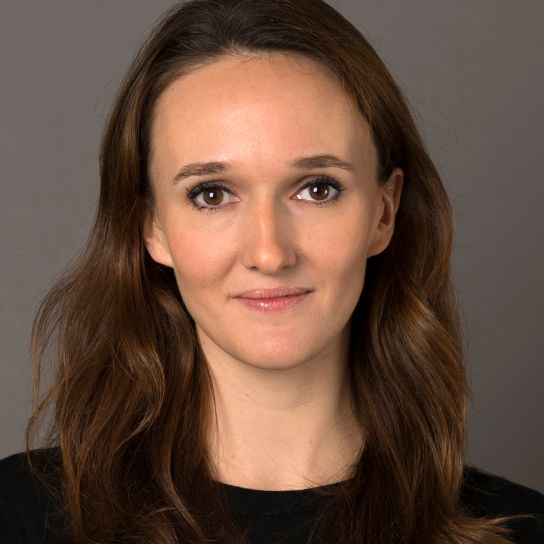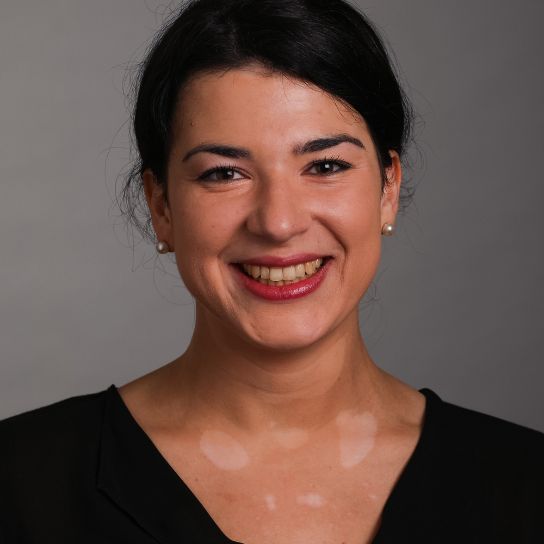Choice of arbitral seat is one of the crucial decisions in any contractual negotiation and can have a direct impact on the ease with which parties are able to resolve their disputes. Indeed, many arbitration users and practitioners consider that, in some circumstances, the choice of seat is more important than the choice of substantive law. Although Paris, like London, has long been considered the "obvious" choice for many parties, the market for arbitral seats is changing. There is greater choice, more competition and an increased willingness to consider alternatives. This is likely to be part of a long-term trend. But for many parties, Paris remains the obvious choice – and is likely to remain so for the foreseeable future, and for good reason.
Paris' enduring popularity
- French arbitration law is sophisticated, reliable and arbitration-friendly. The reforms introduced in 2011 placed it at the forefront of international arbitration law globally, and subsequent case law has helped to maintain this position. In addition, many arbitration-related decisions are widely published and commented upon, further increasing its transparency and reliability.
- Arbitral awards made in France may only be set aside on the limited grounds specified in the French Code of Civil Procedure. Furthermore, the courts are not permitted to review the merits of an award – even where it is (allegedly) tainted by a substantive error of law.
- France is party to the New York Convention, with its attendant advantages in respect of the recognition and enforcement of awards. In practice, the Convention is rarely applied by the French courts themselves because French law is more favourable in respect of the recognition of foreign awards. Thus, as a striking example of the French courts' pro-arbitration approach, the fact that a foreign award has been set aside at its seat does not, in and of itself, prevent its recognition and enforcement in France.
- The French judiciary is neutral, independent, efficient and experienced, with expertise in both arbitration and the conduct of complex international proceedings.
- Paris' (well-deserved) reputation as a pro-arbitration seat means that it is considered a "safe" choice – a factor identified as a key element in a seat's popularity in the QMUL survey.
- London's reputation as a costly venue for legal proceedings means that Paris is often seen as a more economic option.
- The procedural law of many civil law countries was originally modelled on French law. Lawyers from these jurisdictions tend to follow developments in French arbitral law, and our experience indicates that familiarity is often a factor in the choice of Paris as an arbitral seat.
- Besides being a cultural and economic centre, Paris has long been associated with arbitration not least because it is home to the ICC Court. As a result, it boasts a world-class legal market, with counsel specialised in international arbitration, as well as the services and infrastructure needed to sustain an arbitration community and to meet the practical requirements of parties seeking a hearing venue.
These attributes are not, of course, unique to Paris. London (like New York, Singapore or Geneva, to name a few "traditional" arbitral seats) shares many of them. But, for francophone parties in particular, they mean that Paris is often an "obvious" choice when seeking an arbitral seat.
The challenge(r)s
However, like other established seats, Paris faces new challenges.
The most obvious is the rise of "newer" seats4 such as Sao Paolo, Mexico, Malta, Mauritius, Nigeria, Kigali or Lebanon, which have the potential to become increasingly attractive in their respective regions. Developments of this sort are not new. Miami has long attracted Latin American and US parties. But the increasing popularity of such seats – illustrated by the fact that Sao Paolo was the fourth "most preferred" seat among Latin American respondents in the QMUL survey – suggests that this is part of a broader trend towards greater regionalism.
" Paris is a natural (and in many cases perfect) seat for high-value international arbitrations "
The same trend is consistent with a push, in Africa and Latin America especially, to promote local institutions, seats, and arbitrators, as a way to foster more diversity and to close potential cultural gaps.5 This has been reflected in the creation, or increased prominence, of various arbitration centres over the past decade. The growth of the OHADA Common Court of Justice and Arbitration (CCJA) is one example of this. Likewise, the creation of new arbitration centres such as the New Delhi International Arbitration Centre, the Egyptian Arbitration and Mediation Centre and the Tashkent International Arbitration Centre are further examples of the increased appetite for "local" arbitration. Given the tendency of some parties to allow the choice of institution to influence the choice of seat, this may also impact on Paris' popularity.
These developments are also being felt in other ways. ICC arbitration was once synonymous with Paris. But the ICC now also administers cases from offices in New York, Hong Kong, Sao Paolo and Singapore.
Active State support for arbitration is another factor in the emergence of new seats. As they become aware of the financial benefits of a thriving legal market, States are increasingly willing to promote specific locations as arbitral seats or hearing venues. In Mauritius, the government's support for the Mauritius International Arbitration Centre (MIAC) is part of a policy of developing the island as a dispute settlement hub and arbitral seat. Similarly, Rwandan government support has been essential to the successful establishment of the fast-growing Kigali International Arbitration Centre (KIAC).6 Government support has also contributed to the development of seats such as Singapore or Dubai in the past.
The impact of State action may also be more subtle. Paris is a natural (and in many cases perfect) seat for high-value international arbitrations. However, as was noted in a previous issue,7 Hong Kong, Singapore, Kuala Lumpur and Seoul – rather than Paris – are the obvious seats for Belt and Road arbitrations. This does not mean that Paris will suffer as a result. The increase in investment associated with the shift in the globe's economic centre is likely to boost the use of arbitration overall, benefitting Paris (and other "traditional" seats). Some Belt and Road arbitrations are likely to be seated in Paris. The biggest benefits, however, are likely to be felt by Asian, rather than European, seats.
A further challenge, of course, is cost. As more and more seats come to be viewed as "safe", there is a risk that the fact (or perception) that certain "newer" seats may be cheaper than Paris will be a further factor in their favour.
Finally (and perhaps surprisingly), the most immediate challenge to Paris as a seat of arbitration may well be Brexit. Whether it will materially affect London's popularity is (like Brexit itself) impossible to predict. Just over half of the respondents to the QMUL survey thought that it was unlikely to have an impact, while others have suggested that Paris will benefit. Indeed, the French authorities are aware of the potential opportunities, and in 2018 a specialist international chamber in the Paris Court of Appeal – which will hear evidence in English and issue decisions in French and English – was created in an attempt to help attract part of the London litigation market.
However, an alternative view, which was articulated extra-judicially by a Court of Appeal judge last year,8 is that Brexit may increase London's attractiveness as a seat. Unlike its European counterparts, London will not be bound by the Achmea finding that investor-state arbitration under an intra-EU investment treaty is incompatible with EU law – a decision which some commentators have suggested may ultimately have consequences for commercial, as well as investment treaty, arbitration within the EU. This may encourage investors to structure their investments through the UK. Brexit may also mean that anti-suit injunctions are more readily available. For some parties, these factors may increase London's attraction as a seat – potentially to Paris' detriment.
Paris' future
These challenges should not, however, be overstated. Paris continues to boast enormous strengths. It is still one of the world's most arbitration-friendly jurisdictions, and it continues to be a preferred seat for parties in every region of the world.
Crucially, Paris is also particularly well-placed to respond to the growing number of Africa-related arbitrations. This is reflected in both the ICC's figures – which showed a 40% increase in parties from sub-Saharan Africa (many of whom are likely to be francophone) in 2017 – and in our own experience. The Paris office of Herbert Smith Freehills has seen a significant rise in the number of French-language arbitrations in recent years, and disputes increasingly extend beyond the traditional sectors of energy and mining to other areas such as corporate governance and services.
A further consideration is the importance of local intervention, customarily in conjunction with local counsel, in respect of litigation commenced in parallel with ongoing (or imminent) arbitration proceedings. Here, too, a shared language and legal culture is an invaluable asset with the result that Paris – both as an arbitral seat and the home to a polyglot arbitration community – remains the natural choice for such disputes.
" Paris continues to boast enormous strengths "
Notwithstanding the challenges outlined above, therefore, nothing suggests that Paris' position is likely to change in the near future. Its long and distinguished past as an arbitral seat is likely to be matched by an equally long (and equally distinguished) future.
Footnotes:
- Available at: http://www.arbitration.qmul.ac.uk/media/arbitration/docs/2018-Internatio...(2).PDF.
- The exception was Asia-Pacific, where Paris was ranked behind London, Singapore and Hong Kong. The survey included data on preferences for participants from five other regions: Europe, Latin America, North America, Africa and the Middle East.
- On top of the QMUL Survey, See the CIArb Seat Index: https://globalarbitrationreview.com/benchmarking/gar-ciarb-seat-index/11... see also: http://parisarbitration.com/en/why-paris/
- See Delos Guide to arbitration places (https://delosdr.org/index.php/gap/) and especially the "traffic lights for all jurisdictions": https://delosdr.org/wp-content/uploads/2018/05/Delos-GAP-1st-edn-Traffic....
- CIArb Features, recognising the development of "Arbitration consciousness" in Africa, 1st October 2018: https://www.ciarb.org/resources/features/recognising-the-development-of-... SOAS Arbitration in Africa Survey: https://eprints.soas.ac.uk/25741/1/SOAS%20Arbitration%20in%20Africa%20Su....
- The development of the KIAC, and Kigali's growth as an arbitral seat, was discussed in a previous edition of Inside Arbitration. [Issue 3 (February 2017), pp. 11-13].
- [Inside Arbitration, Issue 5 (February 2018), p.4].
- https://www.judiciary.uk/wp-content/uploads/2018/05/speech-by-lj-gross-h...
Key contacts
Legal Notice
The contents of this publication are for reference purposes only and may not be current as at the date of accessing this publication. They do not constitute legal advice and should not be relied upon as such. Specific legal advice about your specific circumstances should always be sought separately before taking any action based on this publication.
© Herbert Smith Freehills 2024


